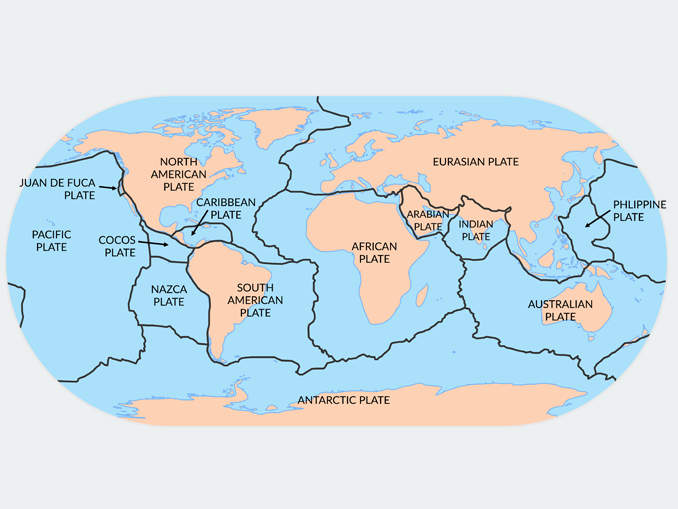What is Geology? What does a Geologist do?
Definition of Geology
Geological development of an area
The geology of an area changes through time as rock units are deposited and added, and deformational processes change their shapes and locations. Deposition can happen when sediments settle on the surface of the planet and afterwards lithify into sedimentary rock, or when as submerged material like volcanic ash or lava flows quilt the surface. Igneous intrusions like batholiths, laccoliths, dikes, and sills, push upward into the overlying rock, and crystallize as they intrude. After the first sequence of stones has been deposited, the rock units can be deformed and/or metamorphosed. Deformation typically occurs as a result of horizontal shortening, horizontal expansion, or side-to-side (strike-slip) motion.
History of Geology
The study of the physical material of the Earth dates back to ancient Greece when Theophrastus (372--287 BCE) wrote the work Peri Lithon (About Stones). During the period, Pliny the Elder wrote in detail of the many minerals and metals then in practical use -- correctly noting the origin of amber.
Geologists work to understand the history of our world. The better they could understand Earth's history, the better they can foresee how processes and events of the past could influence the future.
Geology as a Career
If you're a pre-college student, you can prepare to become a geologist by performing well in all your classes. Science courses are particularly significant, but math, writing, and other areas are utilized by every geologist throughout every working day. If you're thinking about college or graduate school, there are a number of universities offering courses or programs in geology. Visit the web site of a school that offers a geology degree, get in contact with the geology section, let them know that you're interested and also make arrangements to see the campus. Don't be hesitant. Very good professors and schools are interested in being contacted by interested students.
Geology is the study of the Earth, the materials of which it is made, the structure of these materials, as well as the processes acting upon them. It includes the study of organisms that have inhabited our world. An important part of geology is the study of how Earth's materials, structures, processes and organisms have changed over time. There are only a few Geology forums to seek answers to your questions. Join Geology Buzz to meet the amazing community of Geologists.
 |
Geological development of an area
The geology of an area changes through time as rock units are deposited and added, and deformational processes change their shapes and locations. Deposition can happen when sediments settle on the surface of the planet and afterwards lithify into sedimentary rock, or when as submerged material like volcanic ash or lava flows quilt the surface. Igneous intrusions like batholiths, laccoliths, dikes, and sills, push upward into the overlying rock, and crystallize as they intrude. After the first sequence of stones has been deposited, the rock units can be deformed and/or metamorphosed. Deformation typically occurs as a result of horizontal shortening, horizontal expansion, or side-to-side (strike-slip) motion.
History of Geology
The study of the physical material of the Earth dates back to ancient Greece when Theophrastus (372--287 BCE) wrote the work Peri Lithon (About Stones). During the period, Pliny the Elder wrote in detail of the many minerals and metals then in practical use -- correctly noting the origin of amber.
Geologists work to understand the history of our world. The better they could understand Earth's history, the better they can foresee how processes and events of the past could influence the future.
Geology as a Career
Geology can be a very interesting and rewarding career. The minimum training required is a four-year college diploma in geology. Pre-college students who are thinking about becoming geologists should take a complete program of college preparatory courses, particularly those in mathematics, science, and writing. Courses associated with computers, communication and geography are also valuable. Geologists work in many different settings. Many geologists do field work at least portion of the time. Other people spend their time in labs, offices or classrooms. All geologists prepare reports, do calculations and utilize computers.
Although a bachelor's degree is required for entry-level job, many geologists make master's and/or doctorate degrees. The complex degrees provide a greater degree of training, often in a geology specialization area like paleontology, mineralogy, hydrology, or volcanology. Advanced levels will frequently characterize the geologist for supervisory positions, research missions, or teaching positions in the college level. These are a few of the most sought-after jobs within the field of geology. Employment opportunities for geologists are extremely good. Most geology graduates with a solid academic background and good grades have no trouble finding employment if they are willing to move to some place where work is available.
If you're a pre-college student, you can prepare to become a geologist by performing well in all your classes. Science courses are particularly significant, but math, writing, and other areas are utilized by every geologist throughout every working day. If you're thinking about college or graduate school, there are a number of universities offering courses or programs in geology. Visit the web site of a school that offers a geology degree, get in contact with the geology section, let them know that you're interested and also make arrangements to see the campus. Don't be hesitant. Very good professors and schools are interested in being contacted by interested students.

I am having no luck identifying this specimen that I found. I have shown the specimen to a Geology graduate student, and a Gemology graduate student. Neither of these graduate students had any idea what it is. It seems that I know more about this specimen than they do. I have no training.
ReplyDelete